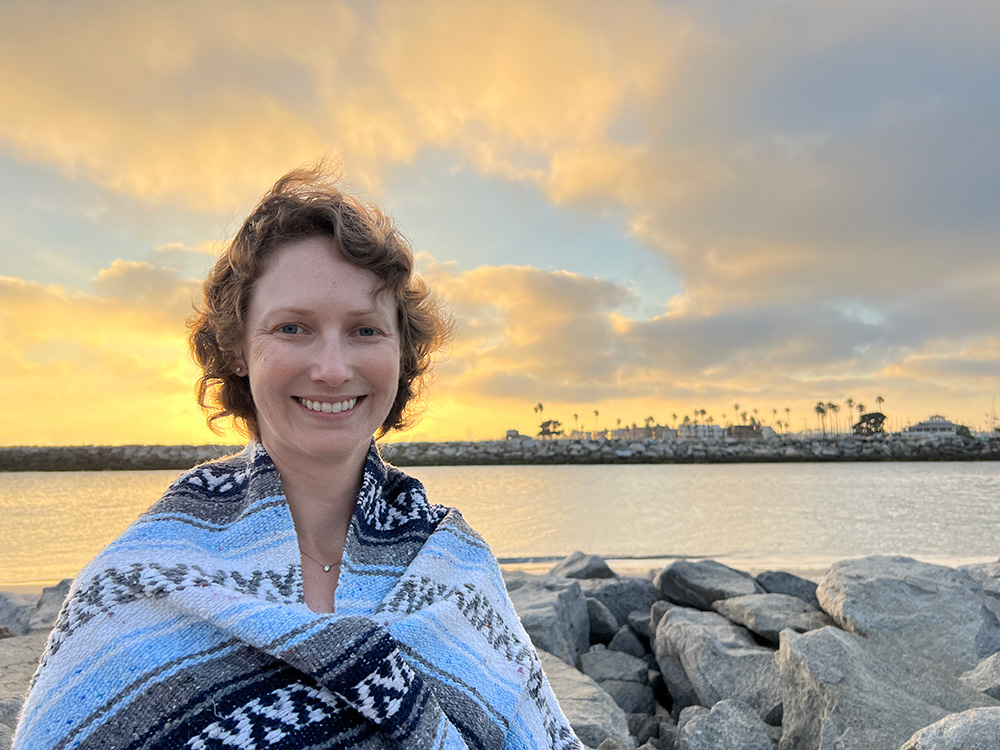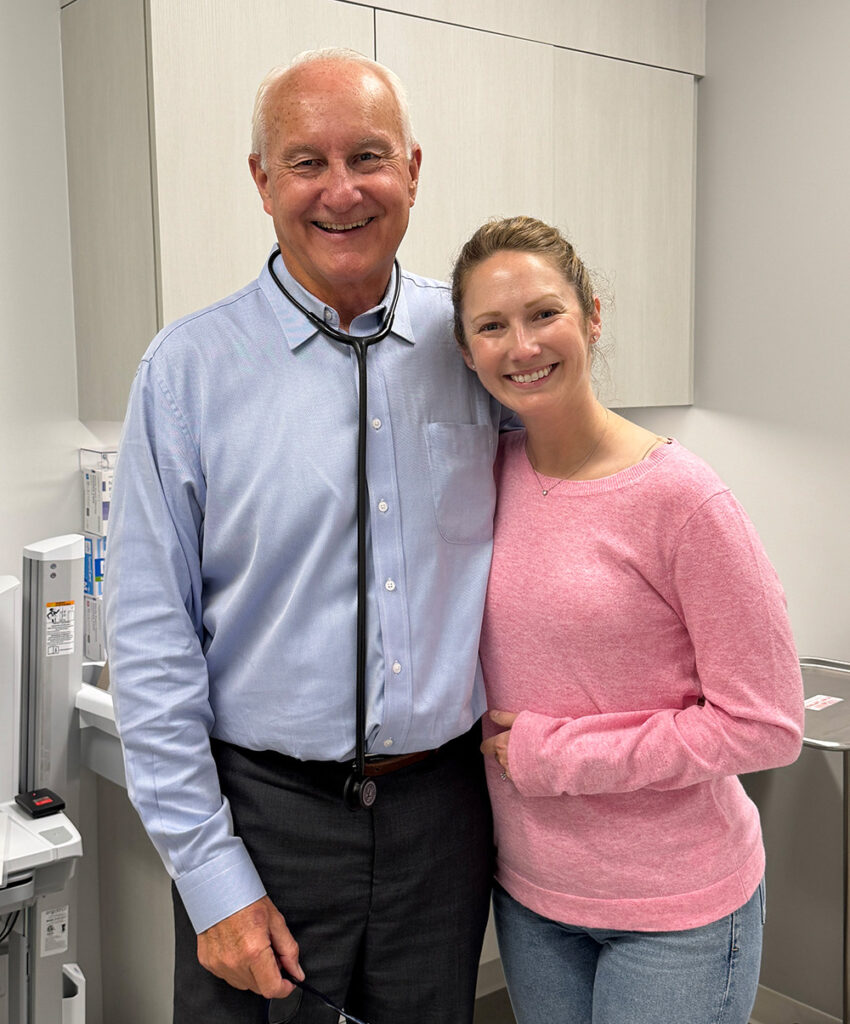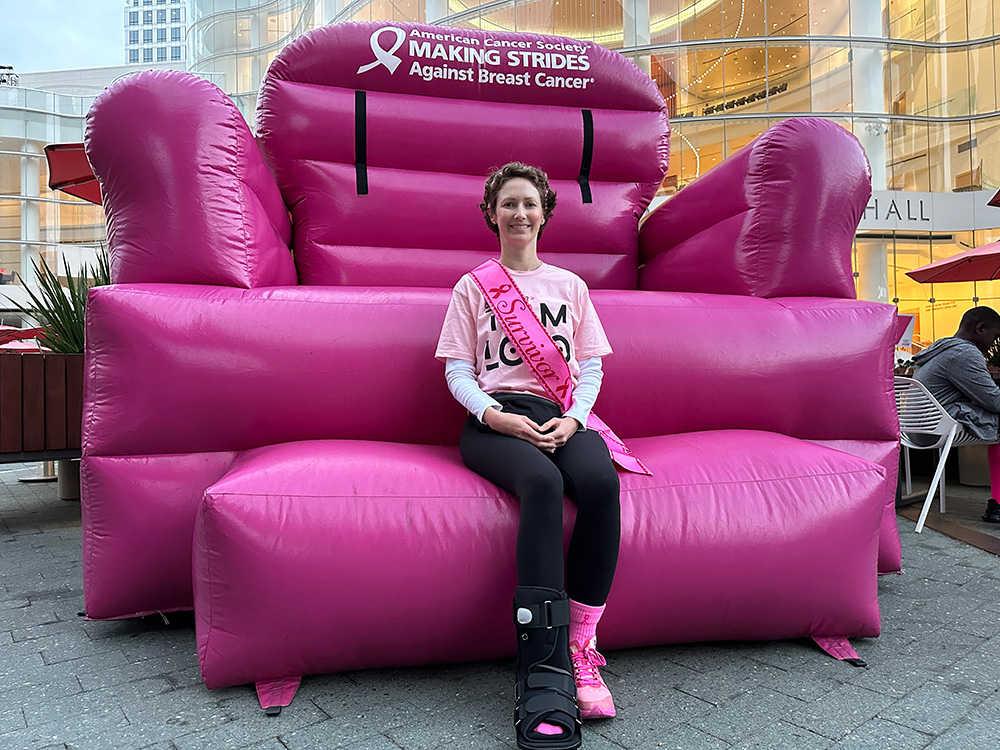
A breast cancer survivor diagnosed at 38 years old describes her journey.
Three days before my 38th birthday, I was told: “You have breast cancer.”
Everything I had heard about breast cancer prior to my diagnosis was that 1) it is a disease that primarily affects older women, and 2) a mammogram will detect breast cancer. I was wrong on both counts.
My first inkling that something was wrong came in December 2021 when I felt a hard lump on my left breast. I went to my doctor and got scheduled for a mammogram. I was assured that since I had no family history of breast cancer and was not yet 40, there was probably nothing to worry about. The mammogram didn’t detect any abnormalities either. At that point, I was advised to come back for another mammogram when I was 40 or if there was a change.
Fortunately, I did not wait until I was 40 to come back. I sought treatment just four months later after waking up one morning with a discharge out of my nipple. Shortly after that, I was diagnosed with triple-negative breast cancer, an extremely aggressive form of breast cancer.
Following my diagnosis, I learned that I carry the BRCA2 gene, which increases my chances of developing breast cancer, ovarian cancer and various other cancers.
I began treatment. I underwent 14 rounds of chemotherapy and immunotherapy, a double mastectomy with reconstructive surgery and a preventative hysterectomy. This November, I will be two years cancer free.
I am so thankful I did not wait until I was 40 to go back to the doctor — that I trusted my instinct that something was wrong when I noticed the change in my breast. Pushing myself to seek treatment despite the fear I felt was probably the bravest thing I have ever done.
When people ask me what I wish I had known prior to my diagnosis, there are four simple answers I always give:

- I wish I had known that genetic mutations exist and that these mutations can increase your chances of developing various forms of cancer. I think everyone should know if they have a genetic mutation so they can figure out how best to take ownership of their life and how they want to live it. I also think people should get genetic tested every few years because new mutations are being discovered regularly.
- I knew chemotherapy would be hard, but I had no idea how hard it would be emotionally and mentally. I had prepared myself the best I could for chemotherapy’s physical side effects, but the emotional and mental side effects of chemotherapy are much harder than the physical, in my experience. I encourage anyone who is put in a position of needing chemotherapy to be open and to talk about how they are feeling — and seek help when needed. I was thankful that my doctors, nurses and family recognized that I needed to seek professional help.
- There are various types of breast cancer. I did not know this originally, and when I learned that mine was triple-negative, which is the most aggressive form, I was actually thankful to be diagnosed with this type of cancer because it is the most responsive to treatment. Making it through treatment gave me the opportunity to live the long life I know I am supposed to live.
- The most important fact, one I feel proud to share with every newly diagnosed breast cancer patient who has a good outcome, is that there is life after cancer. When you are going through treatment, the days are long and you feel alone, but once treatment is over, you start to feel like yourself again. You realize that you get to live and that life post-cancer is truly wonderful and special.
I work hard to educate other women, particularly those under the age of 40, about breast cancer by volunteering my time with various organizations. I am a huge advocate of genetic testing. Had I known there were tests available to check for any genetic mutations, I would have done them years ago and worked hard to prevent cancer from forming. My BRCA2 mutation increased my chances of developing breast cancer to over 80%, whereas the average woman’s chance of developing breast cancer in the United States is 12.5%. This is a huge discrepancy, but outside of the breast cancer community, I don’t know anyone who talks about this.

Lastly, I am so grateful to be alive, to be with my husband and my family and to live a life full of joy. I thank my oncologist, Dr. Louis Vandermolen at USC Norris Comprehensive Cancer Center in Newport Beach, for not only saving my life but for seeing me as a person first and a patient second.
Topics
